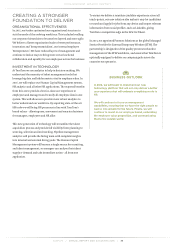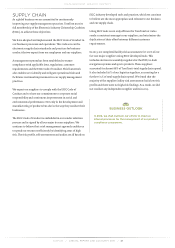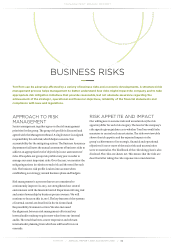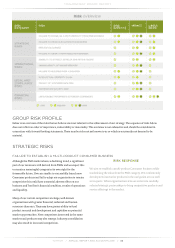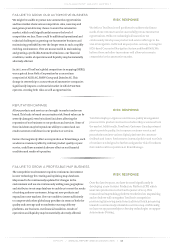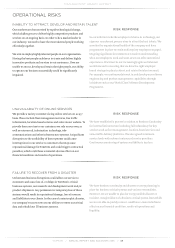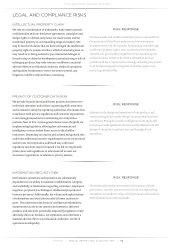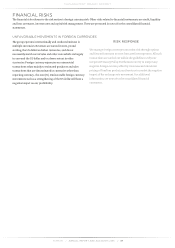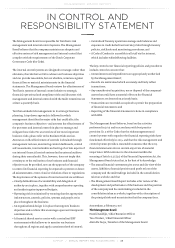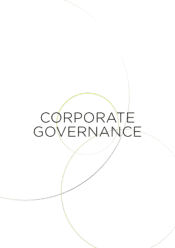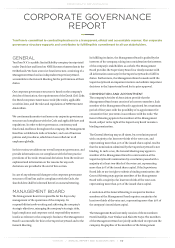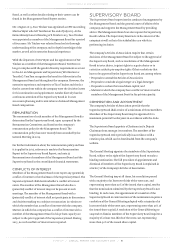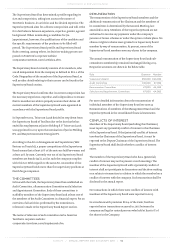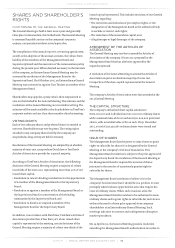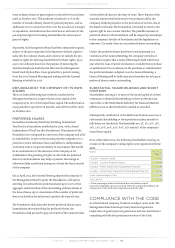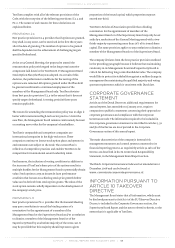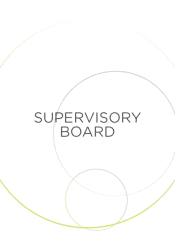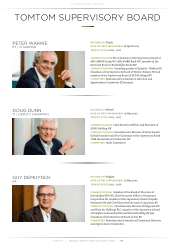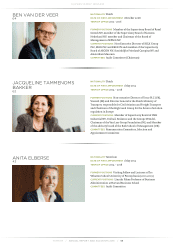TomTom 2015 Annual Report Download - page 49
Download and view the complete annual report
Please find page 49 of the 2015 TomTom annual report below. You can navigate through the pages in the report by either clicking on the pages listed below, or by using the keyword search tool below to find specific information within the annual report.
MANAGEMENT BOARD REPORT
TOMTOM / ANNUAL REPORT AND ACCOUNTS 2015 / 48
IN CONTROL AND
RESPONSIBILITY STATEMENT
The Management Board is responsible for TomTom's risk
management and internal control systems. The Management
Board believes that the company maintains an adequate and
effective system of risk management and internal control that
complies with the requirements of the Dutch Corporate
Governance Code (the Code).
The internal control systems are designed to manage, rather than
eliminate, the risk that we fail to achieve our business objectives
and can provide reasonable, but not absolute, assurance against
financial loss or material misstatements in the financial
statements. The Management Board reviews the effectiveness of
TomTom's systems of internal control relative to strategic,
financial, operational and compliance risks and discusses risk
management and internal controls with the Audit Committee on
at least a quarterly basis.
TomTom embeds risk management in its strategic business
planning. A top-down approach is followed in which
management identifies the major risks that could affect the
company's business objectives - and assesses the effectiveness of
the processes and internal controls in place to manage and
mitigate these risks. For an overview of our most important
business risks, please refer to the Business Risks section.
Assurance on the effectiveness of controls is obtained through
management reviews, monitoring control dashboards, control
self-assessments, internal audits and testing of certain aspects of
our internal financial control systems by the external auditors
during their annual audit. This, however, does not imply that
certainty as to the realisation of our business and financial
objectives can be provided, nor can the approach of the company
to control its financial reporting be expected to prevent or detect
all misstatements, errors, fraud or violation of law or regulations.
The key features of the systems of internal control are as follows:
Clearly defined lines of accountability and delegation of
●
authority are in place, together with comprehensive reporting
and analysis against approved budgets;
Operating risk is minimised by ensuring that the appropriate
●
infrastructure, controls, policies, systems and people are in
place throughout the business;
An organisational design is in place that supports business
●
objectives and a culture that encourages open and transparent
communication;
A financial shared service centre with a centralised ERP
●
environment which allows us to monitor our business
throughout all regions and apply a consistent level of control;
Centralised Treasury operations manage cash balances and
●
exposure to credit default and currency risks through treasury
policies, risk limits and monitoring procedures; and
A Code of Conduct is accessible to all staff via the intranet,
●
which includes whistleblowing facilities.
The key controls over financial reporting policies and procedures
include controls to ensure that:
Commitments and expenditures are appropriately authorised
●
by the Management Board;
Records are maintained which accurately and fairly reflect
●
transactions;
Any unauthorised acquisition, use or disposal of the company's
●
assets that could have a material effect on the Financial
Statements are detected on a timely basis;
Transactions are recorded as required to permit the preparation
●
of financial statements; and
Reporting of the financial statements is done in compliance
●
with IFRS.
The Management Board believes, based on the activities
performed in 2015 and in accordance with best practice
provision II.1.5 of the Code, that the risk management and
control systems with regard to the financial reporting risks have
functioned effectively in 2015, and that the risk management and
control systems provide a reasonable assurance that the 2015
financial statements do not contain any errors of material
importance. With reference to the statement within the
meaning of Article 5:25 (2c) of the Financial Supervision Act, the
Management Board states that, to the best of its knowledge:
The annual financial statements give a true and fair view of the
●
assets, liabilities, financial position and profit or loss of the
company and the undertakings included in the consolidation
taken as a whole; and that
The Management Board Report includes a fair review of the
●
development and performance of the business and the position
of the company and the undertakings included in the
consolidation taken as a whole, together with a description of
the principal risks and uncertainties that the company faces.
Amsterdam, 9 February 2016
The Management Board
Harold Goddijn / Chief Executive Officer
Taco Titulaer / Chief Financial Officer
Alain De Taeye / Member of the Management Board



